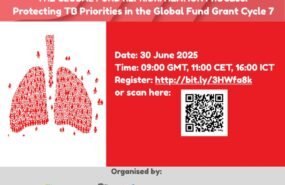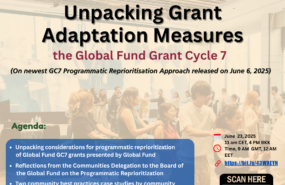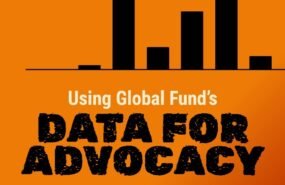Theory and practice of involving non-governmental stakeholders in CCM activities, based on practices in selected countries of Eastern Europe and Central Asia
- 10.02.2020 11:35
- Post Views: 740
As a result of this, the opinions of civil society, including people affected by HIV/TB and most-at-risk populations (MARPs) are being expressed within CCMs and their participation in related activities is more effective and valued.
However, clarification is sometimes required with attention to representation of vulnerable groups in CCMs, adherence to the principles of legitimacy, openness and transparency of NGO members’ selection, and formal approaches to the selection process. In order to address this, all stakeholders (including the Global Fund’ Secretariat, CCM members and civil society groups) should engage in constructive dialogue on these issues to improve current rules pertaining to the functioning of CCMs.
The aim of the report “Theory and practice of involving non-governmental stakeholders in CCM” is to provide a summary of approaches to the process of selection (i.e. election) of CCM members representing the non-governmental sector. It also highlights related problems in Eastern Europe and Central Asia (EECA) whilst reviewing potentially effective practices of non-governmental constituencies (NGC) engagement in CCM activities and offering recommendations for improvement.
Firstly, this document is intended for non-governmental actors involved in the implementation of programmes supported by the Global Fund in EECA who, although not being CCM members, are interested in the effective functioning of this mechanism in their country and would benefit from meaningful participation of their legitimate representatives in CCMs. This report may also be a useful tool for current CCM members, including those from international and governmental agencies, as well as the staff of the Global Fund Secretariat.
To find out about the practices in selected countries of Eastern Europe and Central Asia, please read the full version of the report “Theory and practice of involving non-governmental stakeholders in CCM”.
Services for migrants and refugees from Ukraine – HIV/TB care with a focus on key populations
Due to the increasing flows of refugees from Ukraine because of Russia’s invasion of Ukraine, the EECA Regional Platform created a spreadsheet to fill contacts details of face-to-face and online services for refugees and migrants (with a focus on HIV/TB care and key population groups).
Regional Platform – EECA
This web-resource is a part of new regional communication and coordination project “Regional Civil Society and Community Support, Coordination and Communication Platform - EECA”, implemented by Eurasian Harm Reduction Association (EHRA).
Tags
See also
-
Webinar: Using Global Fund's Data for Advocacy 12.06.2025 12:00
-
GC7 Grant Reprioritization: Updated Timelines 10.06.2025 14:37
-
GFAN reports back: 53rd Global Fund Board meeting 26.05.2025 14:26







